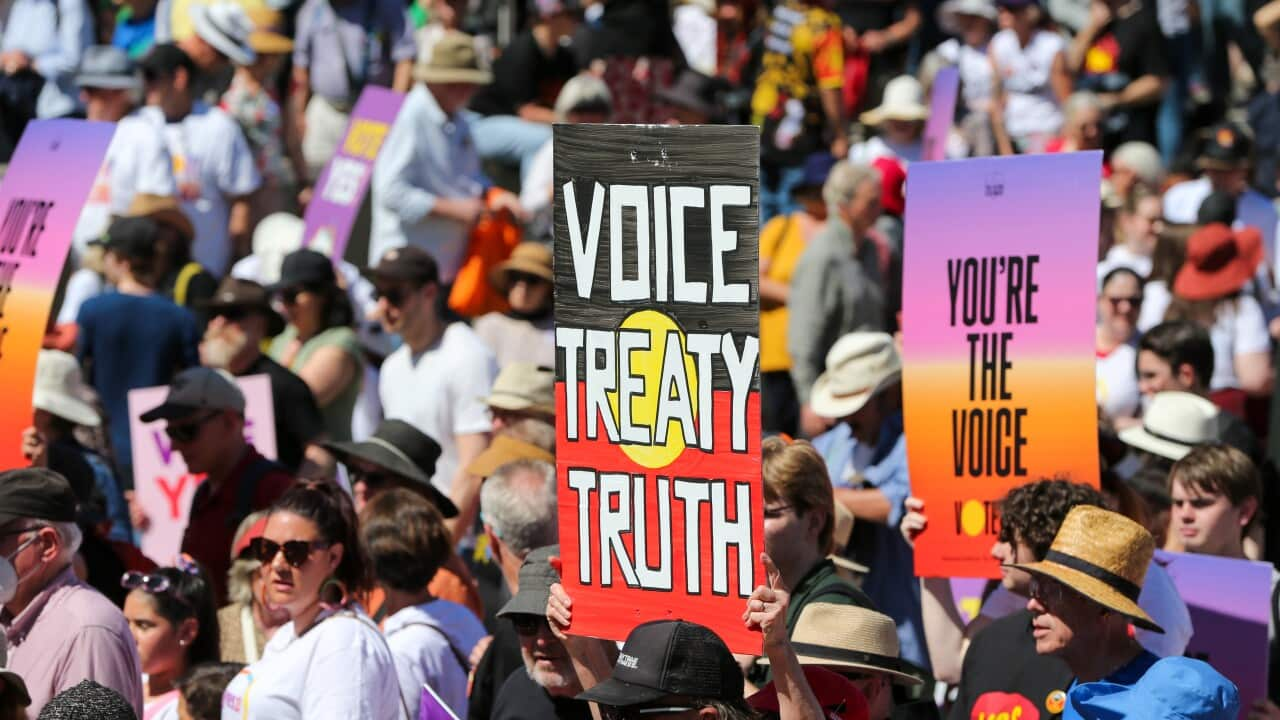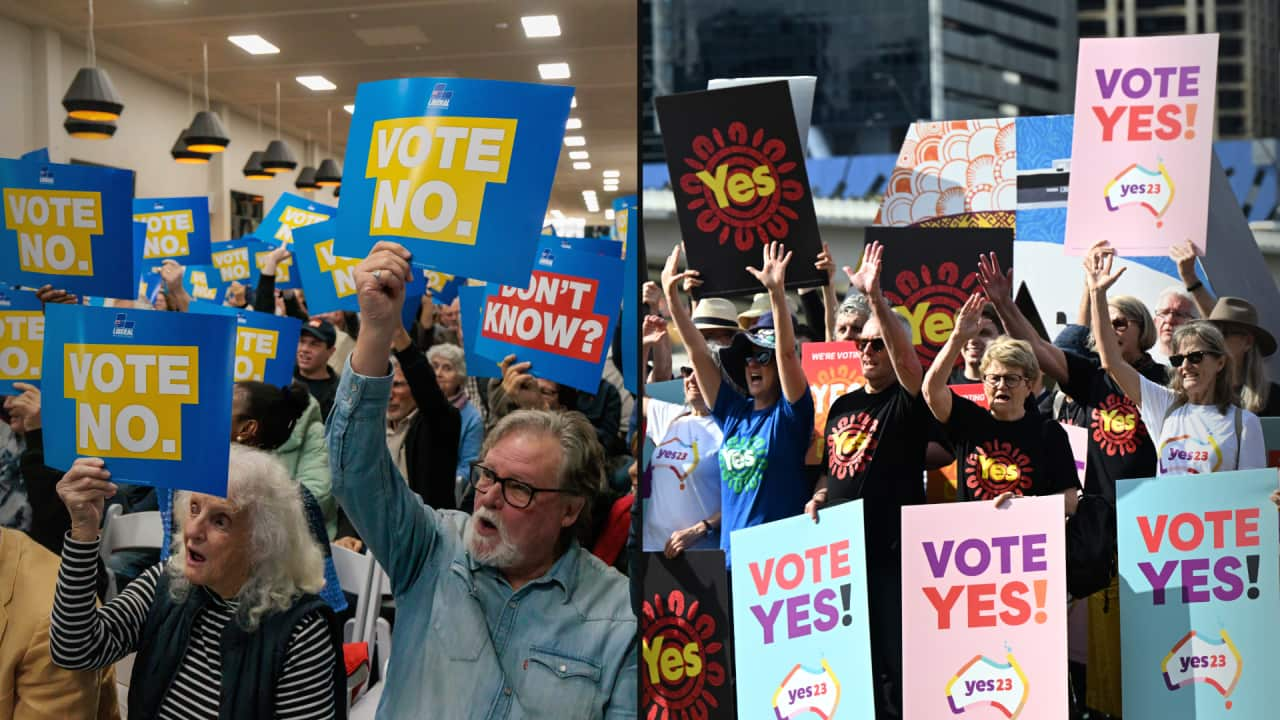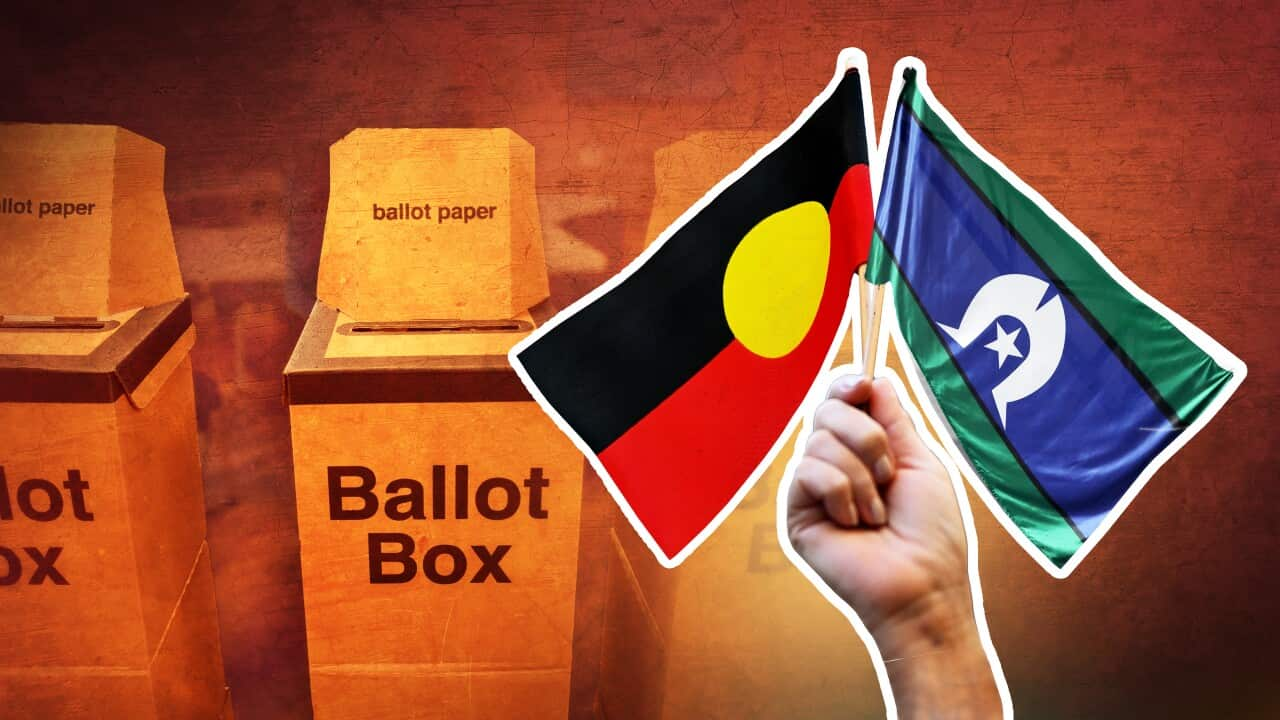Key Points
- Thousands of people have marched in Walk for Yes events across Australia in support of a Voice to Parliament.
- Events have also taken place internationally, with hundreds of people walking across Brooklyn Bridge in New York.
- Australians will head to the ballot box on 14 October to vote in the Voice to Parliament referendum.
Less than four weeks out from the referendum, 40 campaign marches are taking place across Australia in support of a constitutionally enshrined .
Thousands of Australians have flocked to Walk for Yes events in major cities and regional towns in what has been the campaign's largest show of force so far.
Events on Sunday have been headlined by musicians including Paul Kelly, Bernard Fanning and Missy Higgins.
Ngunnawal elder Aunty Violet Sheridan said the referendum was not a political matter but was about "respect and justice".
"This isn't about the past, it's about the future," she told the Canberra rally.
"Let's ensure that our stories, our land, our voices are respected and valued.
"Our voices deserve to be heard in the decisions that shape our lives, the lives of our children, our grandchildren."

Senator Penny Wong attended the Walk for Yes event at Victoria Square in Adelaide. Source: AAP / Matt Turner
"I am almost crying," she told a Melbourne rally on Sunday.
"It's truly overwhelming to look out over this crowd and see you, to know where your hearts are, to know where your spirit lives."
Professor Maree Meredith told a Canberra rally that some people had more of an opportunity in society to have their voices heard and the referendum could help tip the scales by ensuring Indigenous voices were listened to.
"My people share their voices for eight years less than non-Indigenous Australians on average," she said.
"It's a chance to start to close the gap between life, education and opportunities of Indigenous and non-Indigenous Australians."

Supporters marched in Walk for the Yes vote events around Australia over the weekend. Source: AAP / DIEGO FEDELE/AAPIMAGE
"We expect tens of thousands of Australians will come together at over 40 walks in all states and territories to back a successful referendum on 14 October," he said ahead of the events on Sunday.
"We are a people-powered campaign with almost 40,000 volunteers spreading our positive message that this referendum is simply about recognition of Indigenous Australians, listening and better outcomes in areas such as health and education."
Events have also taken place internationally, with hundreds of people gathering in New York to walk across the Brooklyn Bridge in support of the Yes vote.
Federal minister Bill Shorten said it was important the debate heads back to the basics and arguments are focused on the changes to the constitution before Australians.
"Everyone's entitled to their opinion but ... we just need to clarify what this is all about," he told Sky News on Sunday.
"It's far less dramatic and far less worrisome to the rest of Australia than some of the No case are making out."
Voters will head to the ballot box on 14 October, when they will be asked whether they want to recognise the First Peoples of Australia by enshrining an Indigenous consultative body in the constitution.

Supporters for the Voice to Parliament Yes campaign walked through Adelaide on Sunday morning. Source: AAP / MATT TURNER/AAPIMAGE
Controversial comments about colonisation
On Thursday, Opposition Indigenous affairs spokeswoman Jacinta Nampijinpa Price said British colonisation had not had lasting negative impacts on Aboriginal people.
Burney labelled the comments "simply wrong" and a "betrayal" to the Stolen Generations' families.
Prominent No campaigner Warren Mundine said the nation needed to "recognise the good and bad" of colonisation but should not let it continue to capture the national psyche.
"You cannot go on forever saying that colonisation ... is going to stop us from doing things, is going to stop us from improving our lives and keep us in poverty," he told the ABC's Insiders program on Sunday.
"We've got to recognise the problems of the past, we've got to talk about our history factually.
"But at the same time, we have to move forward, if we do not move forward, then we're stuck in history."
Mundine said the largest gap was not between black and white, but between cities and people living in remote and regional Australia.
"This is where the problems are, we have to stop treating Aboriginal people the same," he said.
"We need to be focusing on the ones who are struggling and in need of support."
Indigenous activist Joe Hedger said the impacts of colonisation were clear.
He said people in the Yes campaign should not mistake apathy from undecided voters as disdain for Indigenous people.
"Don't confuse their hesitation for not caring, they deeply, deeply care about this vote and about the future of our nation," he told a rally in Canberra on Sunday.
"We need to support them with truth, we need to reach out to them, take them on this journey.
"Be kind, be gentle."











